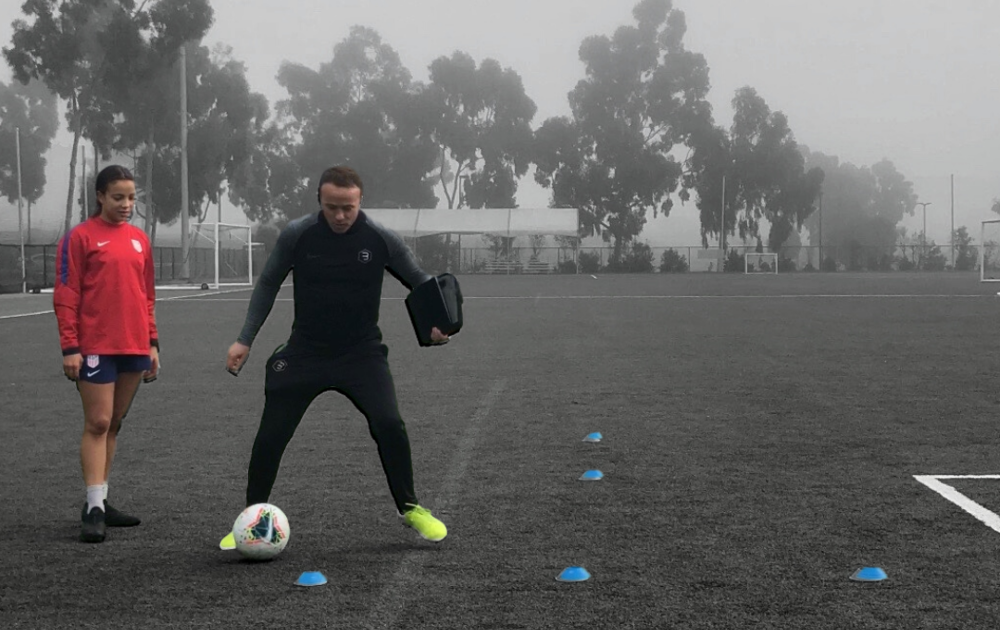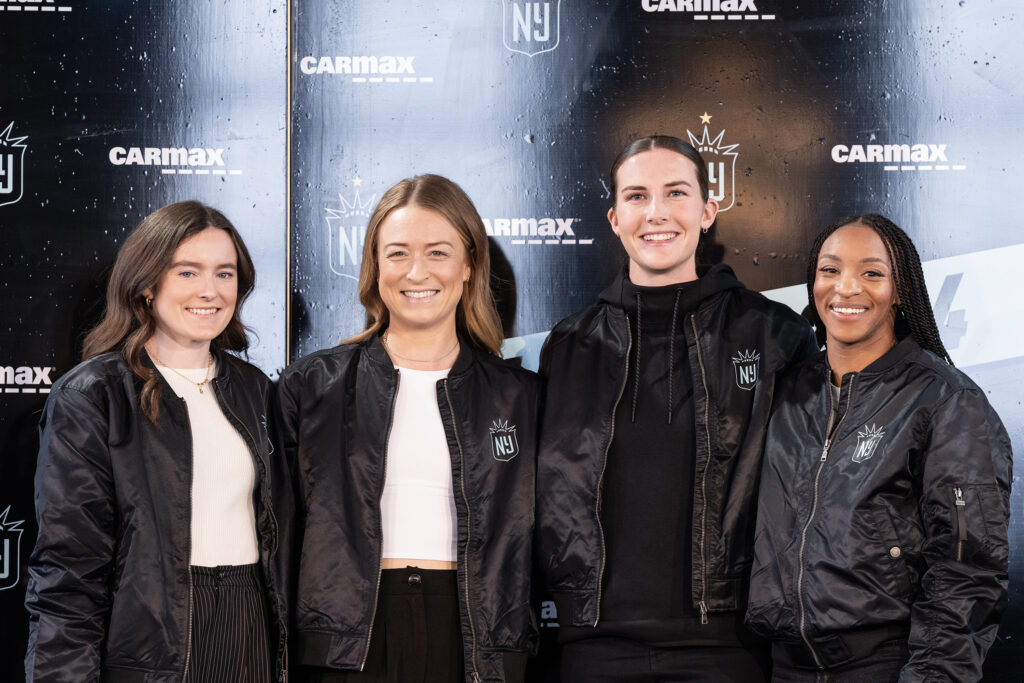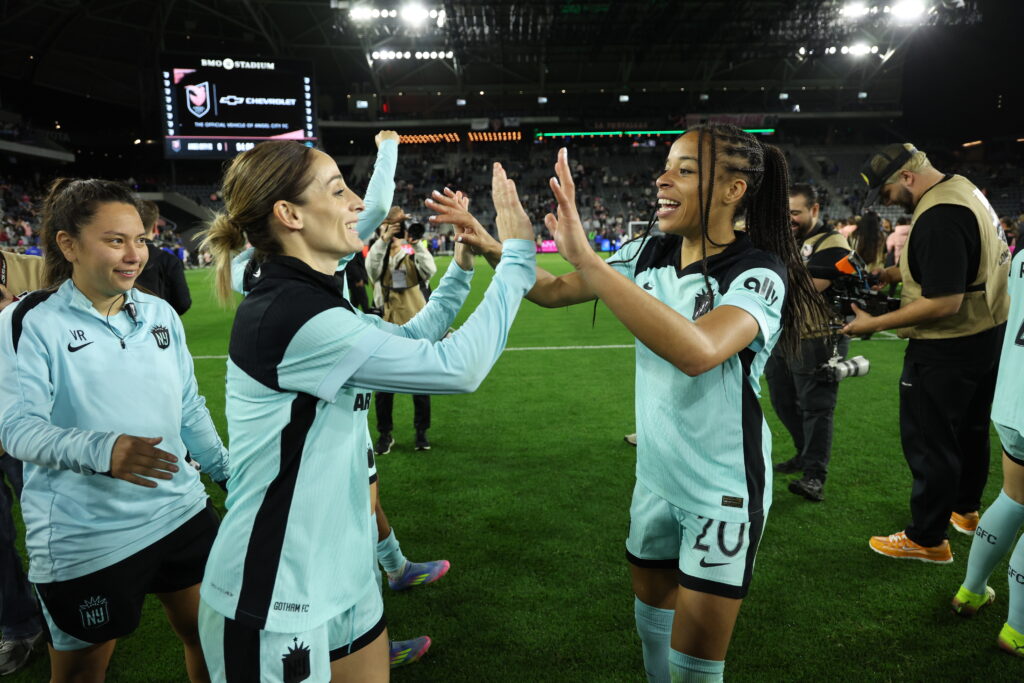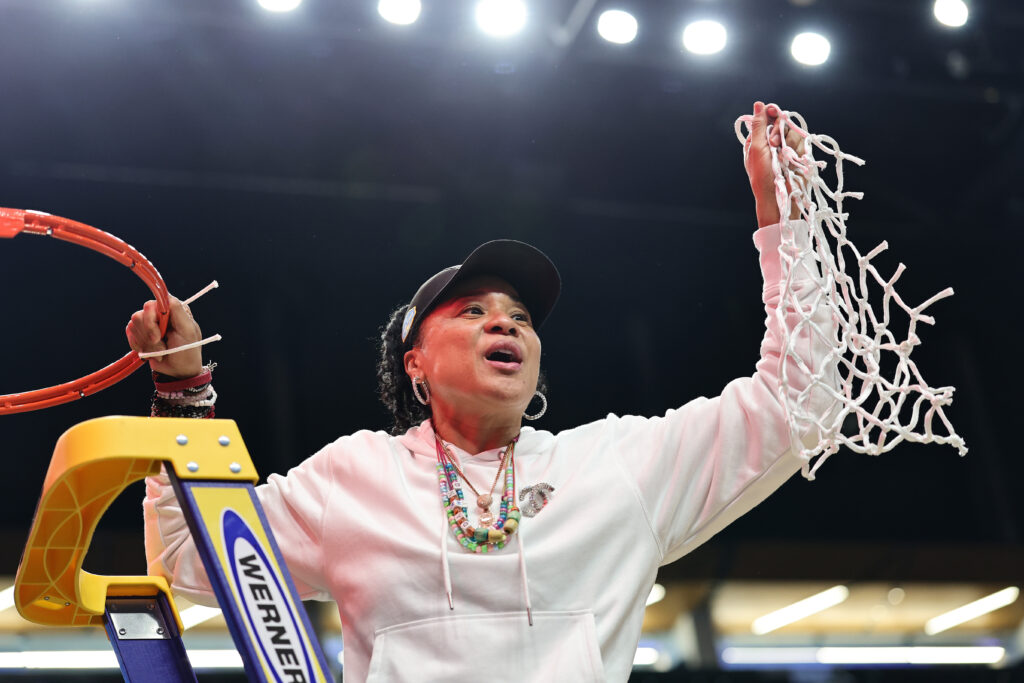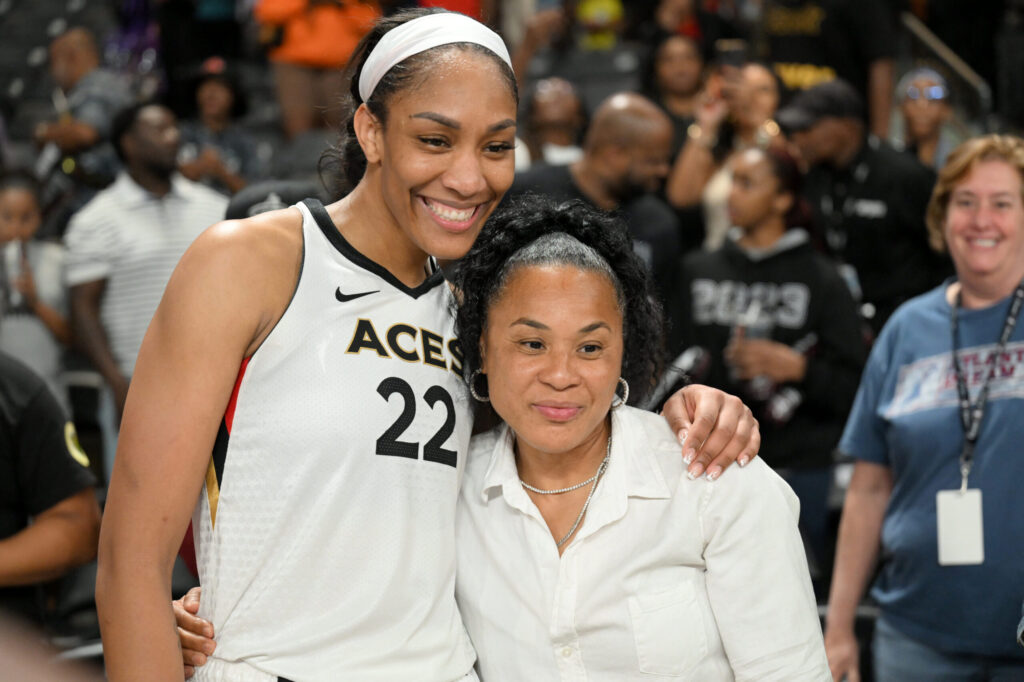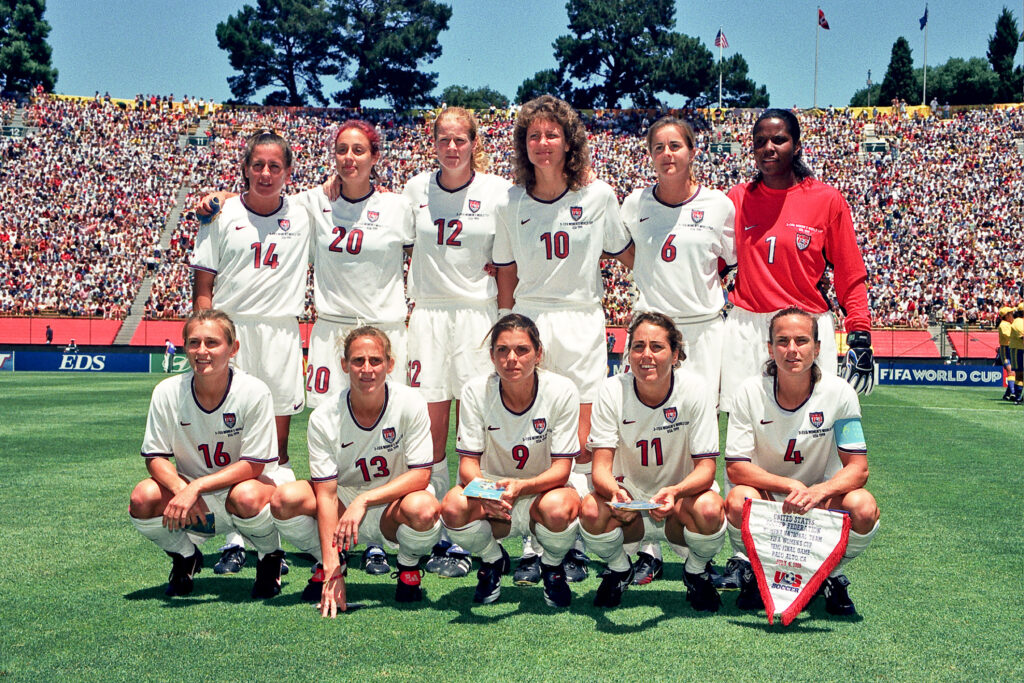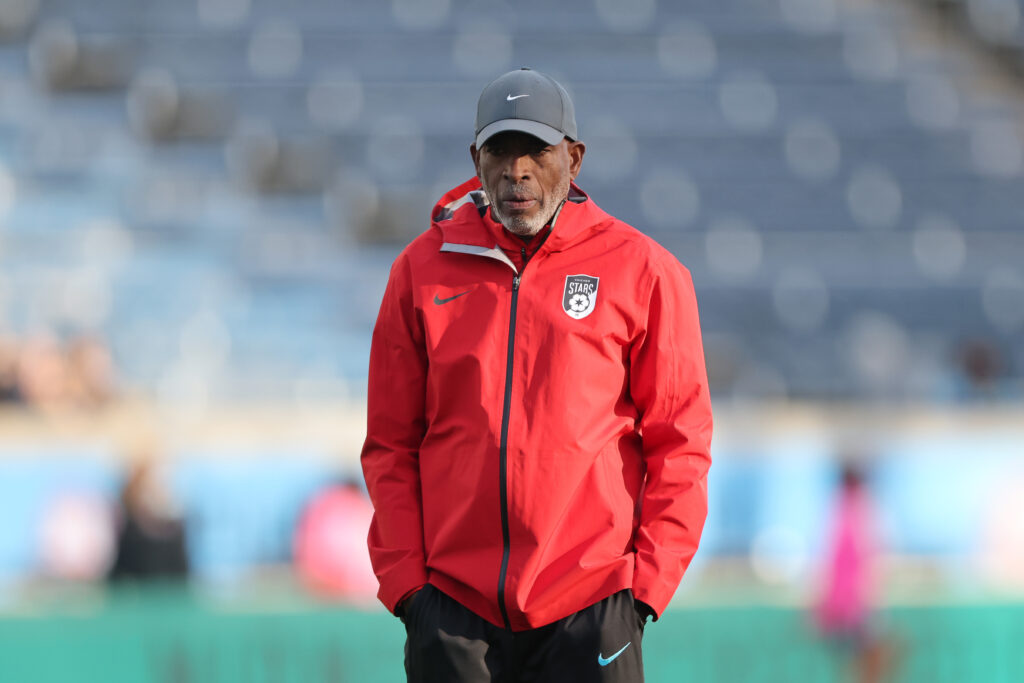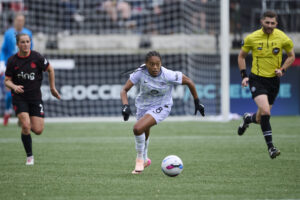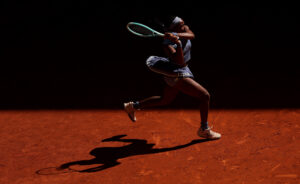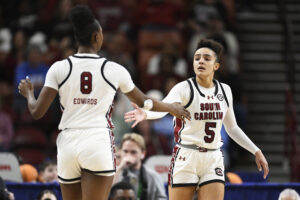David Copeland-Smith is a professional soccer trainer and the founder of Beast Mode Soccer. He has worked with the likes of Alex Morgan, Rachel Daly, Ali Riley, and countless elite prospects over the years. Below, he talks to Just Women’s Sports about the NWSL’s return, Alex Morgan’s post-pregnancy regimen, and the USWNT’s equal pay case.
What is your opinion on the NWSL’s plan to hold a month-long tournament in Utah in June?
I am really hoping the tournament goes ahead. The league has a prime opportunity right now to get eyes on the product. There are barely any sports on TV. This could be an opportunity for players to brand themselves and get brand deals. If the league can pull this off and do it right, people will watch. And maybe only 20% of those people will continue watching when everything is back to normal, but that’s 20% that we didn’t have before.
They have to execute it right, though. Communism looks great on paper but we’ve never executed it right. Maybe it’s the marketing side of me coming out, but I see this as an opportunity for players who may never have this opportunity again. We’ll see what happens. I’m buzzing for it, though.
Who’s your pick to win it all?
Houston always does well the first six games of the season, so they could win it.
You work with Alex Morgan, who just gave birth. Is there a return-to-play protocol after having a child? And, more generally, how do you design your training around women?
For me, especially, all of our training is designed for the specific player. Alex has just given birth to Charlie, who already looks like a legend. For Alex, a lot of it will depend on listening to her doctors and her physical therapist. From my point of view, Alex has her fitness on lock so the focus would be on getting her sharp. The Olympics were meant to be the focus, but now there’s no rush. I said to her when she became pregnant, “Take your time. You’ve given soccer enough, it can wait for you as long as it needs to wait.”
That’s hard for athletes to hear, though. Especially someone who’s as hungry as she is. I’m excited for her because I genuinely think she could come back better — I think she’s going to be sharper. And now that she has a kid, I’d imagine it gives her extra momentum.
You also train a lot of other players on the US women’s national team. What is your reaction to the equal pay lawsuit they have filed against US Soccer?
First of all, I think it should have been handled a long time ago. Unfortunately, ego gets in the way and it becomes a winning and losing game instead of people just doing the right thing. When you look at the stats and the money involved — they should be paid what they earned. That’s all that they want. These women have just won two World Cups in a row. If we can’t put them on a pedestal and give them what they’ve earned, then what kind of message is that sending? It’s ridiculous from my point of view because I see all of the work that goes into winning — all of the heartache of getting cut and then working your way back onto the team.
It is tough because there seems to be so much bad blood on both sides, especially on social media. US Soccer has made a lot of mistakes, but no one ever praises them when they do something well either. I still think they could have handled this better. Hopefully they’ll handle it better from this point on.
US Soccer has argued that the players’ legal claims are invalid given the collective bargaining agreement both sides signed in 2017. What’s your take on that point in particular?
Contract renegotiations happen everyday. The CBA was signed but surely — and this is how I run my company — if someone is doing really well, you want to renegotiate because you want to keep them happy. So, yes, the CBA was signed, but contract renegotiations happen all the time — change happens all the time. They just need to get this out of the way and pay them. It’s not difficult.
Again, it comes down to equality — if this was the men’s team who won two World Cups in a row, would this be an issue? Maybe it would. Maybe it wouldn’t. Maybe US Soccer would take the initiative and say, “Right, you’ve won another World Cup, let’s renegotiate.”
What’s your take on the World Cup bonuses and whether US Soccer and FIFA simply have their hands tied because of the discrepancies between the men’s and women’s tournaments?
Yes, the men’s World Cup makes more money than the women’s, but it has been around for however many more years. Right now, women’s soccer and women’s sports are sleeping giants. You can see it with the last World Cup. France did nothing to promote the World Cup in the slightest, yet every stadium was sold out. If you can’t see the future in that, then I don’t know what to tell you.
But again, FIFA needs to look at themselves in the mirror. They always talk the good game, but there’s a difference between investing and throwing money at something. When you invest in something, you actually want it to grow.
A lot of the lawsuit stems from the players’ club contracts and a lack of financial stability for NWSL players. How do we fix that?
I think it all comes down to marketing. You can fix the club contracts if you’re bringing in 20,000 people every game — if you’re making money. In a place like Houston, they need 7,500 people in the stands just to break even. Are they getting that? No.
What we’re failing to do is make the fans care. From my vantage point, I think the way to market our teams is to look at what LAFC did with the men. Before the team was even a team, they started having events street to street in LA. They started throwing jives at the LA Galaxy and, while it was slightly cringe, it made the fans care — it created that rivalry. Until we figure out what makes us, as fans, care about a team, we won’t be filling any stadiums. And until we fill stadiums and make money, we won’t be fixing any contracts.
You’re from England originally. How did you get into women’s soccer?
When I first came to America, I was in Florida and some of the first teams I worked with were girls teams. Then, when I moved to California, I was hired for a high school girls team. It’s been a natural progression, honestly. Also, I have this underdog syndrome. I love batting for the underdog. And women’s sports, unfortunately, is the underdog. It’s something where I’m very humbled to be a part of these players’ journeys, but I’ll also go to bat for them any day of the week. So, it was a natural progression for me and now it’s something I’m very passionate about.
You train athletes across the board. What is that like and how do you approach training a more amateur player versus an elite player?
It’s been a long journey. When I came to America, I had a bag of clothes and the MLS was paying me $120 a week to coach in Florida. I started to do private training in Florida. When I moved out to California, I decided that I wanted to focus on training individuals, not teams. I didn’t have any money, though, so I got a job coaching high school soccer at Harvard-Westlake. I was there from 2005 to 2010.
To answer your question, it’s very much a normality for me to train both amateur and elite players. The first player who we did really well with was Ali Riley. I trained her in preparation for her to play on the New Zealand under-20 team. She did really well playing for them and continued to do well in college and professionally. She was my first player who did everything I asked her to do training-wise and got results for it. I don’t take credit for anything, really, because I’m not doing anything — I’m not doing the work. I just show them what to do.
I look at all of my players, and they’re all like Ali. Whether they’re 14 years old or 8 years old, all I ask is that they have a good attitude. We use the word “elite,” but I think it’s overused. When I refer to someone as “elite,” I’m referring to a mindset. It is funny, though, because in the off-season I’ll have Alex Morgan in the morning and then a 10-year-old in the afternoon. Regardless, the process is still very much the same. There are no secrets to it. Just analyze your game, plan it out, work hard, and repeat.
With private coaching, are you able to pick out who’s got the it factor and who doesn’t? Is there a thread or a commonality between your players?
It’s the attitude. Are they relentless? Honestly, the players who are a little obsessed with the game are the ones who are going to go far. Even when I train in a team setting, I am able to pick out the three players who are going to go on to play at the next level. I’m not right all of the time, but you can just tell.
Sometimes, the top players under 15 will drop off by the time they turn 17. I’m pretty mean to people about that because it’s always the same story — as soon as the kids are committed to a school they stop working as hard. There have been a few who have had to decommit to schools because they’ve stopped. But besides that, I’d say I have a good eye.
England has a very different youth scene. A lot of players go professional immediately and get individualized training. What are your thoughts on the American system in comparison?
It might be an unpopular opinion, but I believe that college needs to switch to a nine-month-long season. That way you would have time to develop players and you would be able to see what coaches can really do. And, if you have a roster of 30, you might actually play every person. You would also be preparing players for the professional league with the longer season. Obviously, the coaches have to be open to it, and I don’t know whether they are right now on the women’s side because it would mean a lot more work.
As a culture, and especially in sports, we put a heavy premium on hard work. Do you ever worry about overtraining players?
First, those elite players all have fitness coaches who give them plans to follow so they can avoid injuries. Second, I always tell players that if you listen to your body, you will never burn out. It takes discipline, though. Periodization is fantastic if done the correct way, too. Where we find a lot of push back is from performance and fitness specialists because they don’t include our stuff in the periodization. I don’t like to clash with them because I respect what they do hugely, but I do ask for it to be reciprocal. And, players need to take a little bit of ownership over the training as well. But ultimately, listening to the players and being flexible is crucial.
You’ve turned your training and coaching into an online business. How has that transition been?
It’s been good. I have an app now called My Soccer Training. It has taken a long time to build, but it is exactly where I want it to be. The whole idea is to be able to have a private soccer trainer in your pocket for less than $20 a month. We wanted to make something that was different. All of the other apps have drills, but ours follows an analyze, review, organize, execute, and repeat process. We basically use it as our own platform and we put new sessions on the app all the time. All apps are difficult to build, so respect to every other app out there, but mine’s better. Now we have Instagram as a platform, Twitter as a platform and My Soccer Training as a platform. Personally, I despise social media, but I love social media.
Do you consider yourself an influencer?
No. I don’t ever want to hear that word. I am not an influencer. We get a lot of people who reach out to do collabs and I always have to say, “Listen, I’m not an influencer. I’m a soccer trainer who’s really good at what he does.” I’m not on here trying to sell whatever it is they’re selling. I’m not on here doing roly polys through hoops of fire with every shot going into the top corner of a skills net because that’s trash. I’m just someone who’s done quite well for himself, but I also feel like I’ve only done 5% of what I’m capable of. If I could just get over my procrastination.
